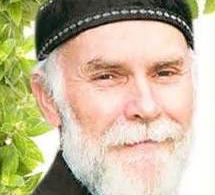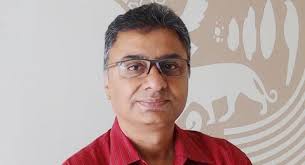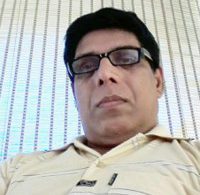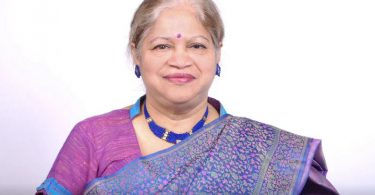The Central Council for Research in Homeopathy is the premier homeopathic research organization in India, with a network of 24 Institutes and Units all over the country and headquarters at Delhi. The Council is engaged in research in various areas to give homoeopathy a firm footage on a scientific platform. It was established as an autonomous body of the Ministry of Health & Family Welfare, Department of AYUSH, Govt. of India, in 1978, with a view to conduct research in Homeopathy on scientific lines.
The Government of India had earlier established the Central Council for Research in Indian Medicine and Homeopathy (CCRIMH) in 1969 to carry out researches in Ayurveda, Siddha, Unani medicine, Yoga and Homeopathy. In 1978, the CCRIMH
was dissolved to pave way for the constitution of four separate research Councils for Homeopathy, Ayurveda and Siddha, Unani medicine, Yoga and Homeopathy. Such independent set-up of the Councils facilitated the promotion of research in the respective disciplines based on their own merits.
OBJECTIVES
· To formulate the aims and patterns of research on scientific lines in homeopathy
· To initiate, develop, undertake and coordinate scientific research in fundamental and applied aspects of homeopathy
· To exchange information with other institutions, associations and societies interested in the objectives similar to those of the Council
· To collaborate research studies with other Institutes of Excellence towards promotion of homeopathy
· To propagate research findings through monographs, journals, newsletters, I.E.C materials, seminars/workshops and develop audio-visual aids for dissemination of information to the profession and public.
RESEARCH IN HOMEOPATHY
The Council is making an endeavor to establish the scientificity of homeopathy by conducting quality research. The mandate of the Council is to conduct research studies with an emphasis on evidence based outcome without compromising the doctrines of homeopathy. The main thrust of the Council is to bring about scientific validation of the work being conducted by it. The research is being conducted by:
· Formulating protocols in conformity with the guidelines of WHO/ICMR without
conflicting the doctrines of homeopathy
· Ensuring Ethical clearance of all protocols by the Ethical
· Committee of the Council
· Corroborating clinical evidence with all the sophisticated laboratory tests required as per provisions of protocols
· Involving the experts of modern medicine, required under different protocols for diagnosis, follow up and outcome assessment
· Involving the bio-statistician in the interpretation of results
· Scrutiny of the studies by Monitoring Committees and
· Data Review Board/Screening Committee
MAJOR ACTIVITIES
Clinical Research
Clinical Research is one of the major research activities of the Council, whereby open clinical trials are conducted to ascertain the role of homeopathic therapy in individual
disease conditions. The Council is currently conducting clinical trials on 18 clinical conditions, for which protocols have been formulated, on modern scientific parameters in consultation with experts of allied disciplines as well as homeopathic experts. The disease conditions under study are: Depressive Episode, Schizophrenia, Chronic Bronchitis, Chronic Sinusitis, Benign Prostate Hyperplasia, Distress during Climacteric (Menopausal) years, Furunculosis, Gastroenteritis, Acute Tracheo-Bronchitis, Urolithiasis, Acute Rhinitis in Children, Vitiligo, HIV/AIDS(Open study), HIV/AIDS (Drug related study), Diabetic Distal Symmetric Polyneuropathy, Diabetic Foot Ulcer, Acute Diarrhoeal Diseases in Children, Drug D-addiction, Malaria (A Pilot Study).
The Council has completed 97 clinical studies (52 Disease related and 45 Drug related) till date. The salient achievements have been in the clinical studies on HIV infection,
Sickle Cell Anaemia, problems in mentally retarded children, Cervicitis and Cervical Erosion, Bronchial asthma, Upper Respiratory Tract Infection (URTI), Drug Deaddiction,
Filariasis, Iron Deficiency Anaemia, Sinusitis, Skin Disorders (Psoriasis, Allergic dermatitis and Vitiligo) and Menorrhagia.
Clinical Verification
The objective of the Clinical Verification studies is to clinically verify the symptomatology obtained from Drug Proving and other literature sources. Currently, the Clinical Verification program is being conducted to verify the drugs proved by the Council. Studies on 35 proved drugs is in progress. The Clinical Verification Program is now
based on the new protocol formed by homoeopathic experts. The Ethical Committee of the Council has approved this new protocol, which defines the inclusion and the
exclusion criteria for the Clinical Verification trials. It emphasizes that the prescription is made only on the basis of the symptomatology of each patient enrolled in the study, which matches with that of the respective medicine. In the past Council has completed Clinical Verification studies on 52 drugs, most of which have been proved by the Council.
Homeopathic Pathogenetic Trial (Drug Proving)
Drug Proving, also known as Homeopathic Pathogenetic Trials (HPT), is a process in which drug substances are put in trial on healthy volunteers and their pathogenetic
effects are observed and noted for therapeutic purposes. Since the discovery of homeopathy, the process and methodology of HPTs have improved greatly. The emphasis of the Council has been to prove drugs of indigenous origin and those
with fragmentary provings. Council has also developed a plan and protocol of double blind technique in Drug Proving. In an attempt to ensure transparency and accuracy in its Drug Proving Program, Council is involving the budding homoeopathic physicians in its Drug Proving Program. Therefore, Drug Proving in some of the homeopathic Medical
Colleges has been initiated with active involvement of the teaching faculty. To verify and authenticate the proving, a Drug Proving Committee is formed at the Institute/Unit, functioning in the premises of the college where the Drug Proving would be conducted.
The Committee consists of the Principal of Homeopathic Medical College, all Heads of Departments of Organon of Medicine, Materia Medica and Repertory and Research
Officer of the Council (Proving Master). One teacher from the College would be the Proving Associate closely associated with Proving Master in the Drug Proving
Program.
Since inception Council has proved 76 drugs. Two volumes of homeopathic Drug Provings has been published.
Drug Standardization
Drug Standardization is a very important area for the growth of homeopathy. It is conducted to ensure quality, genuineness, authenticity of raw drugs and to
evaluate the safety and efficacy of drugs. We cannot expect any favorable results from our medicines, unless they are of high quality and are genuine and pure.
The Council has recently formulated new protocols for the Drug Standardization studies, with the help of Task Force Committees consisting of experts from the disciplines of Pharmacognosy, Chemistry and Pharmacology. The emphasis is to lay down pharmacoepieal standards of homoeopathic drugs for inclusion in Homoeopathic Pharmacoepia of India (HPI) and to serve as the basis for quality control for manufacture of Homoeopathic drugs. Taking into consideration the WHO’s Quality Control Methods for medicinal plants, tests for heavy metals and adulterants are also incorporated in the standardization studies.
Pharmacological studies are being done in collaboration with the reputed Institutes having the required infrastructure. The Standardization studies are conducted on raw drug materials and also on the Mother Tinctures. The Council has completed Pharmacognostic studies on 233 drugs, Physico-chemical studies on 214 drugs and Pharmacological studies on 124 drugs used in homeopathy. In common, Drug Standardization studies of 106 drugs have been completed. Survey, Collection and Cultivation of Medicinal Plants: The Council has collected 8145 medicinal plants through its Survey, Collection and Cultivation of Medicinal Plants unit at Udagamandalam (Ooty) in Nilgiri District of Tamil Nadu. The Unit has cultivated some exotic medicinal plants widely used in homeopathy, including Cineraria maritime, Digitalis purpurea etc. at its Herb Garden. Germ plasms of some homoeopathic medicinal plants are also being maintained.
Collaborative/Fundamental Research Studies:
An essential component of research today is formation of a team, which can work in close coordination and put in their best efforts together. Collaborations are needed to form one such team, where the best of the brains and the resources can come
together. Council has been collaborating with reputed institutes for a very long time. Some useful studies have been conducted through such collaborations, with the institutes like, Indian Council for Medical Research, Banaras Hindu
University, All India Institute of Medical Sciences, University of California Los Angeles (UCLA), etc. Some of these Institutes with which Council is currently pursuing collaborative studies are Department of Medical Elementology and
Toxicology, Jamia Hamdard, Jawaharlal Institute of Post Graduate Medical Education and Research, Puducherry, Osmania University, Hyderabad, School of Tropical Medicine, Kolkata, Central Institute of Psychiatry, Ranchi, Central Institute of Medicinal and Aromatic Plants, Lucknow, Homoeopathic Research Foundation, Lucknow, High Security Animal Diseases Laboratory, Bhopal, National Institute of Communicable Diseases, New Delhi and Safdarjung Hospital, New Delhi. Council has also taken
up joint studies with scientists of Defence Institute of Physiology and Allied Sciences, Delhi and Bhabha Atomic Research Centre, Trombay.
Documentation and Publication
Dissemination of research findings among the profession is a continuous activity of the Council. Council has recently launched Indian Journal for Research in homeopathy, which would publish quality researches conducted nationally and internationally. This journal replaces the previous regular publication of the Council i.e. the Quarterly Bulletin which compiled research studies conducted primarily by the Council over the years. This is the first peer reviewed homoeopathic research journal in India. Other publications of the Council include:
1. CCRH News comprising of activities of the Council.
2. Current Health Literature Awareness Services (CHLAS) providing list of research articles in various National and International Journals available in the Council’s library.
3. Medico-abstracts prepared on various study topics, whereby research articles published in National and International Journals available in the Council’s library are abstracted and compiled for the benefit of the profession. Medico-abstracts on ‘Cancer’ have been recently published.
4. Various priced and non-priced publications for the professionals
5. Handouts in English, Hindi and regional languages for public.
International Recognition
After the outbreak of Avian Influenza in some countries including India in 2005, the human transmission of H5N1 was feared. To meet such menace through homeopathy, the reputed Homoeopathic associations and experts met at Paris in November 2005 to draw strategies and action plans. The International Federation of Classical homeopathy (IFCH), European Committee of homeopathy (ECH), Royal London Homoeopathic Hospital (RLHH), and the American Institute of homeopathy (AIH) formed an International Forum International Scientific Committee on homeopathy and Influenza (ISCHI). This forum also included Central Council for Research in homeopathy. The mandate of this international body is to promote research studies on prevention and treatment of Influenza through homeopathy. The Committee consists of 13 members from UK, USA, France, India, Brazil, Belgium and Israel with Dr. Peter Fisher, internationally reputed homeopathic physician from London as its chairman. Prof. C. Nayak, Director CCRH is the representative from India. The members discuss on the research proposals through teleconferences and meetings.
EMR Scheme
The Department of AYUSH provides grant-in-aid for conducting research
in homoeopathy through the Extra- Mural Research (EMR) Scheme.
Council is monitoring the EMR scheme of the Department of AYUSH. Till date 16 studies have been concluded, and currently 19 studies are in progress.
Website of the Council
The website of the Council www.ccrhindia.org provides the details of the infrastructure and activities of the Council. It is updated regularly. Those interested can visit the website to keep themselves informed of the activities of the Council.
The endeavor of the Council is to conduct good quality research for the times to come so that the Council can carve a niche for itself among the Homeopathic fraternity all over the world. The mandate of CCRH, therefore, is now to move along the lines of scientific research to come out with good quality research studies, which would pave the way for all future researches in homeopathy.





